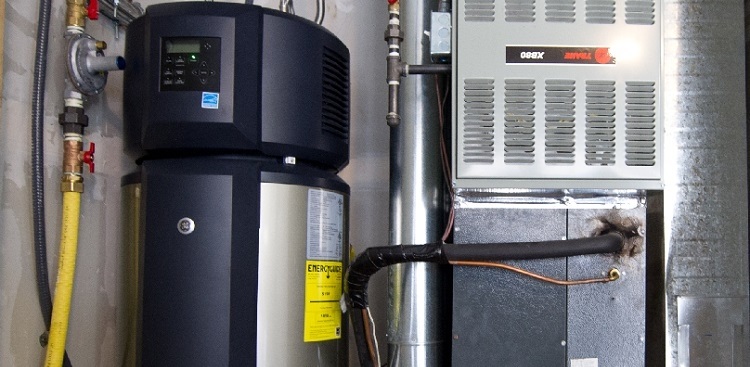Every little and big convenience in our homes is much appreciated. Nobody cares about water heaters until they fail, and we have to take frigid showers. Then there’s the often-overlooked issue of the potential environmental impact of these water heaters.
Electric water heaters are now the worst option in terms of global warming impact. The majority of electricity in the United States is generated by coal-fired power plants, which are barely 30-40% efficient. Even if you don’t directly use natural gas for heating, the production of electricity results in the release of various greenhouse gasses.
Water heaters typically have a lifespan of 40-50 years. A water heater will normally last your household 8 to 10 years. Heat pumps and tankless water heaters are both more efficient and environmentally friendly, making them a good buy.
Heat Pumps and Water Heaters
Heat pumps in water heaters exploit the latent heat in the air. As a consequence, you can save hundreds of dollars on energy bills each year while keeping the same degree of comfort as with other types of heaters.
A heat pump water heater is a great option for a more environmentally friendly heater that can last more than a decade with proper maintenance. With the correct pump, you can heat water even if you don’t have access to natural gas. The electricity consumption of this heater is much lower than that of its predecessors. They also produce far fewer pollutants.
Have You Heard of Tankless Water Heaters?
Tankless water heaters have two main selling points: they use little energy and have a minimal environmental impact. When cold water enters the tankless unit, it is heated by gas or electricity to ensure that there is always enough hot water, even when the tap is turned off. This is why they are also known as instantaneous or demand-type water heaters.
If you use less than the average 40 gallons of water per day, a tankless water heater will save you between 25 and 35 percent on your energy bill. Even if their numbers were doubled, they would be 8-14% more efficient. You might save up to 50% on your energy bills if you switch to tankless water heaters.
Conclusion
The most prudent solution you can try to decrease your carbon footprint is to consume less energy by adopting small changes in your everyday behaviors, such as turning off lights when leaving a room and unplugging chargers when not in use.
More efficient equipment, such as heat pump water heaters and tankless water heaters, can also help you save energy and money. These appliances are less harmful to the environment than standard water heaters and can help you save money on your energy bill. Switching to an energy efficient water heater is an excellent place to start if you also want to lower your carbon footprint.
Purchase a New Heater
Alternatives to typical water heaters that are more environmentally friendly, less expensive, and take up less space are rapidly gaining popularity. If your water heater is over 8-10 years old or is no longer producing the same amount of hot water, it should be replaced.
Due to the increasing use of tankless water heaters in new construction, going green with your water heating is a no-brainer and a wise long-term investment. If you need a water heater installation in Portland, WA, call Henco Plumbing Services now.
You may also like
-
Why Summer is the Season to Celebrate Your Plumber: Water Wisdom for Warmer Weather
-
Hidden Heroes: The Impact of Commercial Heating on Productivity and Comfort with CSB Plumbing Company
-
Columbus Clogged Drain Repair: Trust the Expertise of Doc Thompson Plumbing
-
Quick Clear Drainage – A Knowhow
-
The Hidden Dangers of DIY Plumbing Repairs for Richmond Homeowners

